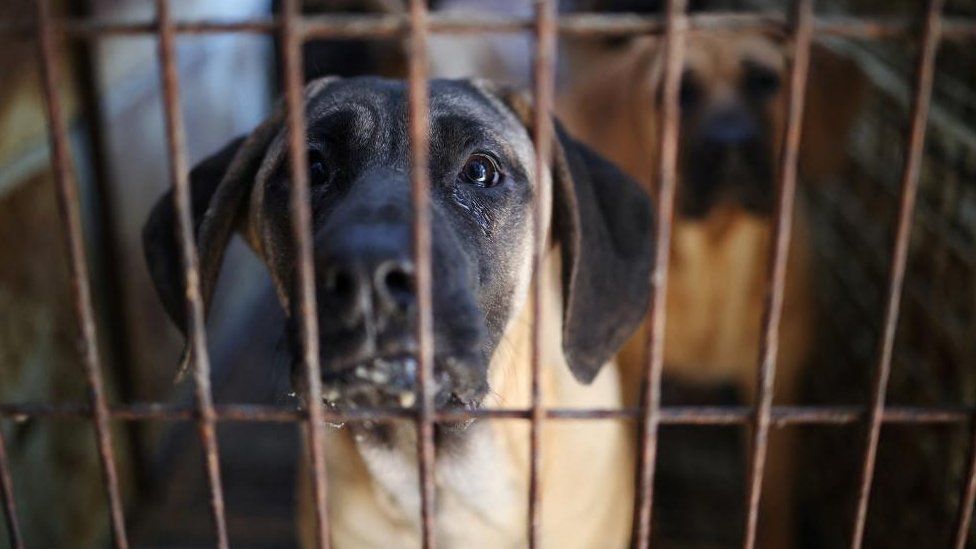South Korea passes law banning dog meat trade
South Korea has enacted a new law to put an end to the slaughter and trade of dogs for meat by 2027.
This legislation seeks to eliminate the longstanding tradition of consuming dog meat, which has witnessed a decline in popularity, especially among the younger generation.
The law prohibits the raising or slaughtering of dogs for consumption, as well as the distribution or sale of dog meat.
Offenders could face imprisonment, with those involved in butchering dogs potentially serving up to three years and those raising or selling dog meat facing a maximum of two years. Notably, the act of consuming dog meat itself will remain legal.
Scheduled to take effect in three years, the legislation allows farmers and restaurant owners time to transition to alternative sources of income. They are required to submit plans for phasing out their businesses to local authorities.
The government has committed to supporting affected dog meat farmers, butchers, and restaurant owners, though the specifics of compensation are yet to be determined.
Government statistics from 2023 indicate that South Korea had approximately 1,600 dog meat restaurants and 1,150 dog farms. While dog meat stew, known as “boshintang,” has been considered a delicacy by some older South Koreans, its popularity has waned among the younger population.
According to a Gallup poll in the previous year, only 8% of respondents claimed to have consumed dog meat in the past 12 months, down from 27% in 2015. Additionally, less than a fifth of those surveyed expressed support for the continued consumption of dog meat.
The generational gap in attitudes was evident in Seoul, where a few older individuals were enjoying dog meat stew in an alleyway with several dog meat restaurants.
Kim Seon-ho, an 86-year-old, voiced disappointment at the ban, citing the long tradition of consuming dog meat and suggesting that if dog meat was to be banned, beef should face a similar prohibition.
But Lee Chae-yeon, a 22-year-old student, said the ban was necessary to promote animal rights. “More people have pets today,” she said. “Dogs are like family now and it’s not nice to eat our family.”
Previous governments, dating back to the 1980s, have pledged to ban dog meat, but failed to make progress. The current President Yoon Suk Yeol and the First Lady Kim Keon Hee are known animal lovers. The couple owns six dogs, and Ms Kim has called for the practice of eating dogs to end.
Animal rights groups, which have long been pushing for the ban, praised the outcome of Tuesday’s vote.
Jung Ah Chae, the executive director of the Humane Society in Korea, said she was surprised to see the ban in her lifetime. “While my heart breaks for all the millions of dogs for whom this change has come too late, I am overjoyed that South Korea can now close this miserable chapter in our history and embrace a dog friendly future”, she said.
Dog meat farmers had campaigned against the ban. They argued that, given the declining popularity among young people, the practice should be allowed to die out naturally over time. Many farmers and restaurateurs are elderly and said it would be difficult for them to switch livelihoods so late in life.
One dog farmer, Joo Yeong-bong, told the BBC the industry was in despair.
“In 10 years, the industry would have disappeared. We’re in our 60s and 70s and now we have no choice but to lose our livelihoods”, he said, adding that this was “an infringement of people’s freedom to eat what they like”.
One dog meat restaurant owner in her 60s, Mrs Kim, told the BBC she was frustrated by the ban, and blamed it on the rise in the number of people in South Korea having pets.
“Young people these days don’t get married, so they think of pets as family, but food is food. We should accept dog meat but raise and slaughter them in a hygienic environment”, she said.
“Other countries like China and Vietnam eat dogs, so why are we banning it?”, she added.


